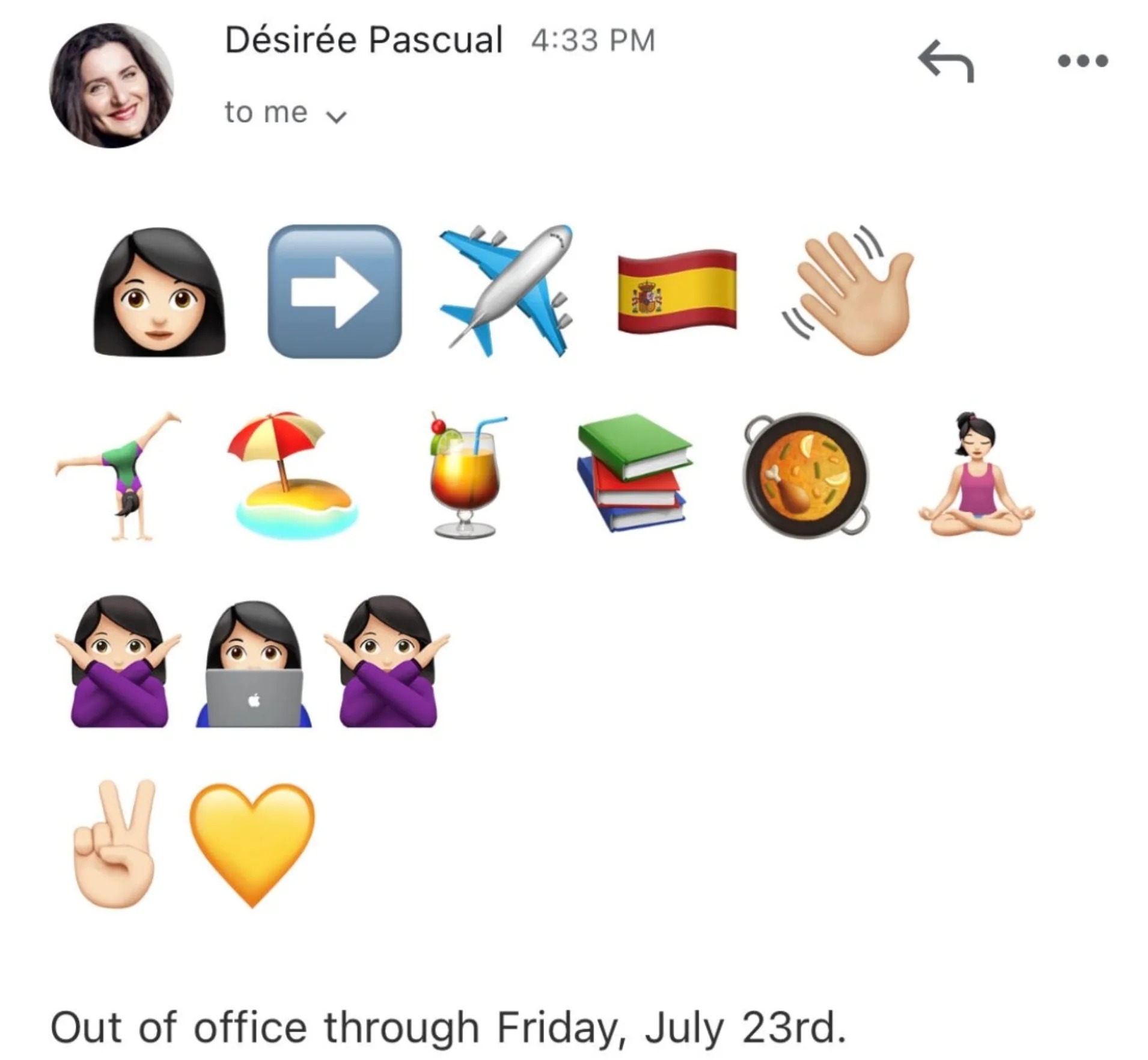Desiree Pascual is the chief people officer at Headspace Health and leads HR for around 1,000 employees. Despite a packed schedule during a hypergrowth phase of the company, it doesn’t keep her from taking a three-week trip to Spain every summer to visit her parents.
This year, she’ll be gone for most of July and also plans to take some time off around the winter holidays “because a once-a-year vacation is not enough in the environment we work in today,” Pascual tells CNBC Make It.
“It’s important to take your time unapologetically, fully and wholeheartedly,” she adds.
Here’s why Pascual, 58, says she’s unapologetic about taking her time off, why she was skeptical about unlimited PTO (Paid time off) and why she once wrote her out-of-office message in emojis.
Unlimited PTO
This is the first company I’ve worked for with such a policy. I was doubtful it would work. In a mission-driven company like ours, people tend to overwork because they’re passionate about what they do. I joined the company at the onset of the pandemic, so I made it clear we needed to not just say, “take the time you need,” but we needed to operationalize it. So every other Friday is a “Mind Day,” or a company-wide day off where people can take care of themselves. We also formalized different types of leave: generous maternity leave, paternity leave, bereavement leave — different types of leave that speak to the way people live.
Be comfortable when deciding to take a vacation
She wrote her out-of-office message in emojis
Last year, I wrote my out-of-office in emojis. I wanted to sprinkle in a little creativity and warmth, instead of that two-line, cold, cookie-cutter reply that we see in too many places. I wanted to catch the reader’s attention, make them smile and get people talking about it. Because when they talk about my out-of-office message, they talk about time off, and they normalize planning for it and celebrating it.
It was also playful way of sharing information about my trip. So the next time someone saw me, they would say, “I saw a Spanish flag in your message. Tell me about what you did in Spain.”
“Refuse” to read emails while on vacation?
In my out-of-office message this year, I’m taking it to a new level. I will say something to the effect of: “I am currently on vacation, and I will not review any emails that come in while I’m away, including after I get back.” There’s nothing like spending a lovely two-week vacation and coming back to a backlog of emails that make you even more stressed within an hour upon return.
On whether she ever feels guilty taking time off?
No. I truly, truly don’t. I’m also a trained therapist. So it gives me some insight into how we operate as human beings emotionally and mentally. If you don’t take that time, or you take that time riddled with guilt and check your email every day, it’s not really a vacation, but a reduced workload during a period of absence.
On unplugging from work devices
For the most part I unplug, because I know anything else is counterproductive to the objective of time off. As leaders, we try to be really clear about our intention to fully unplug, and why that matters. And then actually do it. Because what leaders say is so much less important than what leaders do.
On worrying about work emergencies
There is no problem that’s un-figure-out-able. Most of the things that come up that feel like emergencies aren’t actually emergencies. If something comes up, leverage the brilliance and competency on your team to figure it out without disturbing the people away on their well deserved vacations.
What she’d tell her 25-year-old self about taking time off
Just do it. I don’t want to speak for everyone, but I’m a first-generation immigrant. And often when we come to this country, we have a tendency to overwork to prove ourselves, because we have so many obstacles to overcome. But I’d tell my younger self to just do it. You will be better if you do.







